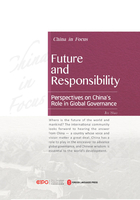
I. Global governance amidst the evolution of the world structure
In November 1975, six major industrialized countries (the United States, Japan, the United Kingdom, France, Germany,and Italy) came together to form the Group of Six which became the Group of Seven (G7) in the following year when Canada joined. Leaders of the G7 countries would meet on a regular basis to discuss their positions and views on major international issues, and communiqués would be issued to show their aligned policy attitudes and willingness to coordinate. Since then, the basic framework of global economic and financial governance had always been part of the Bretton Woods system formed in the early post-WWII period. It means that the G7, the International Monetary Fund (IMF) and the World Bank were all cooperation mechanisms under the Bretton Woods system.These mechanisms were all similar in that they represented the views and behaviors of major Western powers with regard to global governance.
The G7 contributed to more than 80% of the world economy in the mid-1980s, so they were capable of global economic governance then. Their share of the world economy began to decline gradually after that. Russia was at one point a participant in the G7 summits after the end of the Cold War.However, the G7 continued to exist as a parallel mechanism on issues pertaining to economic and financial governance, seeking to build and maintain the world order in accordance with the standards of the West.
In the late 20th century, especially after the 2008 financial crisis, developing countries and emerging economies had gradually come to account for more than half of the global economy, and this proportion continued to rise. At this juncture,the original framework of global governance was lagging behind the actual developments in the world economy. In 2008, a subprime mortgage crisis broke out in the U.S. and gradually evolved into a global economic crisis. In November,the international finance forum attended by the central bank governors and finance ministers of the world’s 19 largest economies and the European Union (EU) – an annual financial meeting mechanism involving the G7 countries, China, Russia,India, Brazil and South Africa (collectively known as BRICS today), as well as South Korea, Indonesia, Saudi Arabia, Brazil,South Africa, Mexico, and Argentina – was elevated to a meeting of heads of state.
Thus, the Group of Twenty, or G20, was created to meet the growing need for a mechanism of dialogue between developed countries and emerging economies due to developments in the world economy. Since then, it has been clearly positioned as “the primary platform for global economic governance”. This means that the global governance system has entered the G20 era.
In a certain sense, the modern human society has become a global village where everyone’s interests are intertwined. As such, inclusive links have been established within human society through non-natural means, achieving the organic integration of individuals on a broad scale and making possible the emergence of a community with a shared future for mankind that replaces the existing network of connections and integrates the whole of mankind.